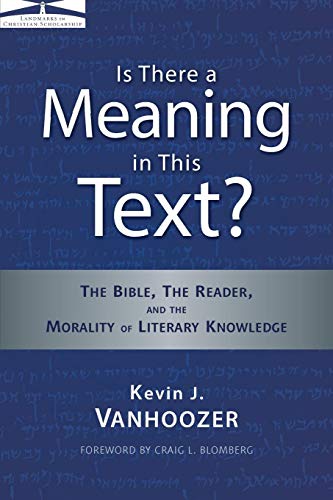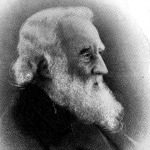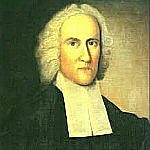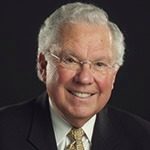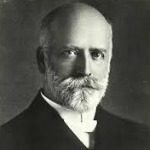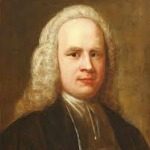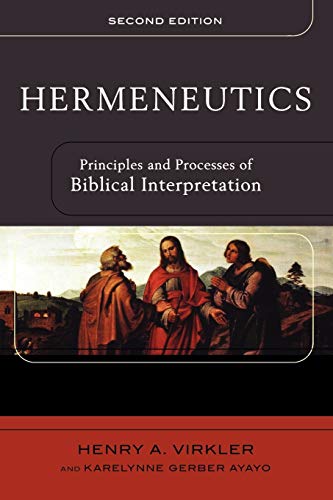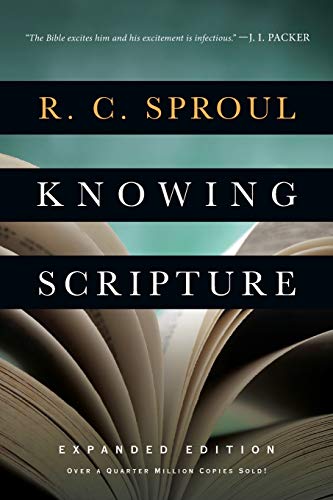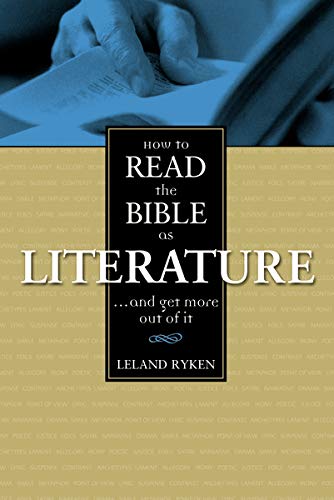Quotes about Bible-Reading
Usually we think of methods of intake as falling into four categories – hearing the Word taught by our pastors and teachers (Jeremiah 3:15), reading the Bible ourselves (Deuteronomy 17:19), studying the Scriptures intently (Proverbs 2:1-5), and memorizing key passages (Psalm 119:11). All of these methods are needed for a balanced intake of the Word… [But] we must do more than hear, read, study, or memorize Scripture. We must [also] meditate on it (Joshua 1:8).
Copied from The Pursuit of Holiness by Jerry Bridges, © 1996, p. 99. Used by permission of NavPress – www.navpress.com. All rights reserved. Get this book!
Bible reading enables us…to enjoy communion with God as He speaks to us from His word, encouraging us, instructing us, and revealing Himself to us.
The Practice of Godliness, NavPress, 1996, p. 39, www.navpress.com. Used by Permission. Get this book!
Remember that it is not hasty reading, but serious meditation on holy and heavenly truths, that makes them prove sweet and profitable to the soul. It is not the mere touching of the flower by the bee that gathers honey, but her abiding for a time on the flower that draws out the sweet. It is not he that reads most, but he that meditates most, that will prove to be the choicest, sweetest, wisest and strongest Christian.
The great cause of neglecting the Scriptures is not want of time, but want of heart, some idol taking the place of Christ.
As you read, pause frequently to meditate on the meaning of what you are reading. Absorb the Word into your system by dwelling on it, pondering it, going over it again and again in your mind, considering it from many different angles, until it becomes part of you.
Oftentimes in reading [the Bible], every word seemed to touch my heart. I felt a harmony between something in my heart, and those sweet and powerful words. I seemed often to see so much light exhibited in every sentence, and such refreshing food communicated, that I could not get along in reading; often dwelling long on one sentence, to see the wonders contained in it; yet almost every sentence seemed to be full of wonders.
Resolved, to study the Scriptures so steadily, constantly and frequently, as that I may find, and plainly perceive myself to grow in the knowledge of the same.
I had then, and at other times, the greatest delight in the Holy Scriptures, of any book whatsoever. Oftentimes in reading it, every word seemed to touch my heart. I felt a harmony between something in my heart, and those sweet and powerful words. I seemed often to see so much light exhibited by every sentence, and such a refreshing food communicated, that I could not get along in reading; often dwelling long on one sentence, to see the wonders contained in it; and yet almost every sentence seemed to be full of wonders.
Scripture is like a working museum of which the Spirit is the Curator, showing us around and explaining the wonders of the mind of the Maker. In this museum we are taken behind the scenes to learn from God Himself. In growing to know God, therefore, there is no substitute for the discipline of Bible study and Scripture reading and meditation. We cannot bypass the handbook God has given to us and then expect that we can know Him in our own way. The only god we can know in our own way is a god that we make in our own image.
Having lost the security of being rooted in the eternal reality of the Word of God, we are looking to busy activity to fill the void that has been created in our lives. And under that bondage to activity we find it difficult to linger with the Word simply for the joy of it. In fact, we may be afraid to stop our busyness lest it expose the shallowness of our lives. So we go on from activity to activity, from project to project. But activity is a dangerous source of fulfillment. Instead of finding our identity, our sense of self-worth, from our relationship with God, we begin to look to success in programs and other earthly indicators of success for our self-worth. But these will never satisfy. This will only enslave us more in our bondage to activity.
The Joy of Truth by Ajith Fernando taken from The Supremacy of Christ by Ajith Fernando, copyright 1995, Crossway Books, a division of Good News Publishers, Wheaton Illinois 60187, www.crosswaybooks.org, p. 111.
It is tragic to go through our days making Christ the subject of our study but not the sustenance of our souls.
Sanctification doesn’t happen by osmosis. We can’t starve ourselves spiritually and still expect to grow in the likeness of Christ. All the facets of Scripture – all its rich benefits and blessings – are not available to those who fail or refuse to open it and study.
Unless we read the Word of God, we cannot be instructed by the Spirit, and unless we are instructed by the Spirit, we cannot become godly and effective servants. To put it another way, loving the Word, learning from the Word, and living out the Word are interlocked in God’s plan for our spiritual growth.
How to Read a Christian Book, 2001, p. 46. Used by permission of Baker, a division of Baker Book House Company.
If we slight the reading of the God-breathed Word, the Holy Spirit is handicapped with dull tools for teaching, reproof, correction, and instruction in right doing. Why then should we be surprised that we fall short of godly character, feel spiritually incompetent in Christian witness, and fail at good works? The loop of learning takes us back to the basics. If we want the qualities associated with spiritual maturity, we must be avid readers of the God-breathed Word and serious students of Scripture.
How to Read a Christian Book, 2001, p. 52. Used by permission of Baker, a division of Baker Book House Company.
By definition, the living Word is dynamic, not static. Just as John described Jesus as a living…human organism whom people could touch and feel, the Word of life continues to be fully alive among us through the presence of the Holy Spirit. If we believe anything less, we make Jesus Christ an artifact of history and his Word a static truth of limited contemporary value. Neither is true. For those who believe, the living presence of Jesus Christ and the relevance of his Word is as real today as when he walked and talked on earth. Eternal, final, alive, and relevant – these adjectives describe the living Word.
How to Read a Christian Book, 2001, p. 17. Used by permission of Baker, a division of Baker Book House Company.
Christians need no other reason to be avid readers of the Word of God. Realizing that Scripture is “God-breathed” is motivation enough. Immediately, we see a connection between the living Word and the written Word. Just as Jesus Christ the living Word is an ever present and dynamic reality, the written Word is equally alive and active through the mind of the Holy Spirit. Every time we open the Scriptures, we should expect a personal encounter with the God-breathed Spirit of the living Word. This is reading at its very best. When the mind and spirit of a biblical author interact in vibrant dialogue with the mind and spirit of a reader, the highest purpose of the inspired Word is fulfilled. We should soar every time we read the Word of God.
How to Read a Christian Book, 2001, p. 18- 19. Used by permission of Baker, a division of Baker Book House Company.
Merely reading the Bible is no use at all without we study it thoroughly, and hunt it through, as it were, for some great truth.
God is the author of the Bible, and only the truth it contains will lead people to true happiness. A Christian should read this precious Book every day with earnest prayer and meditation. But like many believers, I preferred to read the works of uninspired men rather than the oracles of the living God. Consequently, I remained a spiritual baby both in knowledge and grace.
The Autobiography of George Muller, 1984, p. 21. All quotations taken from books published by Whitaker House are used with permission of the publisher. Whitaker House books are available at Christian bookstores everywhere. Get this book!
In what way shall we attain to this settled happiness of soul? How shall we learn to enjoy God? How shall we obtain such an all-sufficient soul-satisfying portion in Him as shall enable us to let go the things this world as vain and worthless in comparison? I answer, this happiness is to be obtained through the study of Holy Scriptures. God has therein revealed Himself unto us in the face of Jesus Christ.
Now what is food for the inner man? Not prayer, but the Word of God; and here again, not the simple reading of the Word of God, so that it only passes through our minds, just as water passes through a pipe, but considering what we read, pondering it over and applying it to our hearts.
Our ultimate conviction that the words of the Bible are God’s words comes only when the Holy Spirit speaks in and through the words of the Bible to our hearts and gives us an inner assurance that these are the words of our Creator speaking to us… Those who are Christ’s sheep hear the words of their great Shepherd as they read the words of Scripture, and they are convinced that these words are in fact the words of their Lord… They hear their Creator’s voice speaking to them in the words of Scripture and realize that the book they are reading is unlike any other book (Wayne Grudem and Jeff Purswell).
Bible Doctrine: Essential Teachings of the Christian Faith, Zondervan, www.zonderan.com, 1999.
If you haven’t been jarred when you’re reading the Bible, you’re not reading it.
Take away the cross of Christ, and the Bible is a dark book.
Amidst the flood of dangerous reading, I plead for my Master’s book; I call upon you not to forget the book of the soul. Do not let newspapers, novels, and romances be read, while the prophets and Apostles be despised. Do not let the exciting and sensual swallow up your attention, while the edifying and the sanctifying can find no place in your mind.
He that would be conformed to Christ’s image, and become a Christlike man, must be constantly studying Christ Himself.
We begin with receiving and then rightly understanding Scripture in our minds. But before we apply the Bible, it must first engage our hearts. Without the mind, biblical application is based on flimsy and deceptive emotions. Yet without the heart, biblical application is based only rote duty and obligation. It’s never hearts informing our minds, but rather minds informing our hearts. Then when we obey, it’s a correct application of Scripture that comes from the affections – loving God with all of our hearts.
Here then, is the real problem of our negligence. We fail in our duty to study God’s Word not so much because it is difficult to understand, not so much because it is dull and boring, but because it is work. Our problem is not a lack of intelligence or a lack of passion. Our problem is that we are lazy.
Knowing Scripture, Copyright (c) 1977 InterVarsity Christian Fellowship/USA. Used with permission of InterVarsity Press, P.O. Box 1400, Downers Grove, IL 60515. www.ivpress.com.
I am one of the bookworms that have not got halfway into my Bible yet; but I am eating my way as fast as I can. This one thing I have proved to myself beyond all question; I shall never, never exhaust this precious book. Much less shall I exhaust the wondrous Person of my divinely-blessed Lord. He is that bread which came down from heaven. He is utterly inexhaustible.
Nobody can do as much damage to the church of God as the man who is within its walls, but not within its life.
Nobody ever outgrows Scripture; the book widens and deepens with our years.
The more you read the Bible; and the more you meditate on it, the more you will be astonished with it.
I venture to say that the bulk of Christians spend more time in reading the newspaper than they do reading the Word of God.
In the first years of George Mueller’s Christian life, he spent more time reading the works of men than the Scriptures. Up until the day of his conversion he could not even recall reading one chapter of the Book of books. However, in the ninety-second year of his life he told his biographer that for every page he had read in any other book he was sure that he had proportionately read ten pages of the Bible. During the last twenty years of his life he read through the Scripture four or five times annually. In studying Mueller’s life I have discovered that his devotion and delight in God’s Word was the secret to his faith and life of prayer.
A Journey to Victorious Praying, Moody Publishers, 2003, p. 79.
Get this book!
A verse must be read often, and re-read and read again before the wondrous message of love and power that God has put into begins to appear. Words must be turned over and over in the mind before their full force and beauty takes possession of us. One must look a long time at the great masterpieces of art to appreciate their beauty and understand their meaning, and so one must look a long time at the great verses of the Bible to appreciate their beauty and understand their meaning.
When we read the Bible we need to ask God to grip us by the Bible’s radically disproportionate focus on God’s saving love for sinners seen and accomplished in Jesus Christ.
The reason we come away so cold from reading the word is, because we do not warm ourselves at the fire of meditation.
Read the Scripture, not only as a history, but as a love-letter sent to you from God.
A Puritan Golden Treasury, compiled by I.D.E. Thomas, by permission of Banner of Truth, Carlisle, PA. 2000, p. 35.
God has condescended to become an author, and yet people will not read his writings. There are very few that ever gave this Book of God, the grand charter of salvation, one fair reading through.
Do you realize that tape-recorded readings of the Bible have proven that you can read through the entire Book in seventy-one hours? The average person in the United States watches that much television in less than two weeks. In no more than fifteen minutes a day you can read through the Bible in less than a year’s time.
Spiritual Disciplines for the Christian Life, 1991, p. 33. Used by permission of NavPress – www.navpress.com. All rights reserved. For more information please see the website www.BibicalSpirituality.org. Get this book!
If our motives for study and meditation are spurious, driven largely by curiosity, obligation or intellectual pride, there will be no real benefit top the soul… [Are we] yielding to every word that comes from the mouth of God (Mt. 4:4)?
Recommended Books
